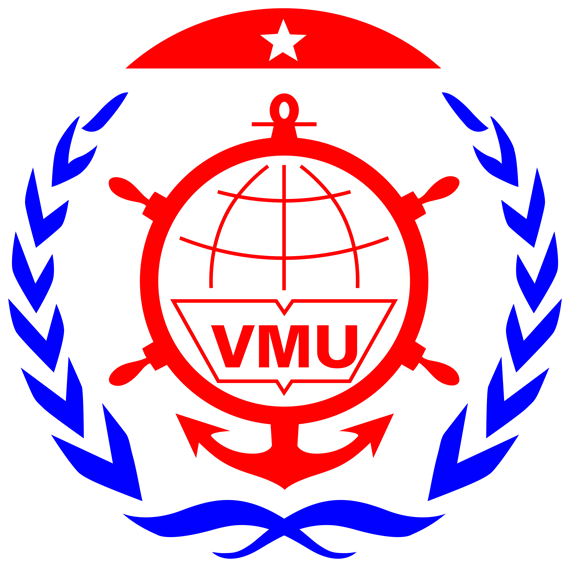1. Introduction
|
Program title: |
Bachelor of International Business and Logistics |
|
Graduation degree: |
Bachelor's degree |
|
Study model: |
Full-time |
|
Total credits: |
144 |
|
Used language: |
English |
|
Training duration: |
4 years (8 semesters) |
|
Responsible Faculty: |
Faculty of Economics |
|
Website: |
|
|
Address: |
Room 112, 1st Floor, Building A4, Vietnam Maritime University, 484 Lach Tray - Le Chan - Hai Phong Phone: 0225 3735353 Email: khoakinhte@vimaru.edu.vn |
The Bachelor of International Business and Logistics program at Vietnam Maritime University, designed by the Faculty of Economics, is built upon academic frameworks from esteemed domestic and international institutions. Regularly updated to align with industry demands and comply with the regulations of the Ministry of Education & Training and Vietnam Maritime University, the curriculum ensures that students gain comprehensive knowledge, essential skills, and professional attitudes necessary to meet the Vietnamese National Qualifications Framework and international workforce standards.
The program aims to develop high-quality human resources for the maritime economy, international trade, and logistics sectors, contributing to Vietnam’s national development and global economic integration. Graduates earn a bachelor’s degree in International Business and Logistics, equipping them with the ability to design, implement, and operate international trade and logistics activities. They are trained to be dynamic, creative, and adaptable, capable of thriving in diverse work environments and competing with professionals in the Asia-Pacific region. The program not only prepares students for careers in logistics and supply chain management but also opens doors to opportunities in international trade, import-export operations, freight forwarding, maritime and port management, warehouse distribution, and supply chain analytics.
By integrating theoretical knowledge with hands-on experience, the program ensures that graduates are well-prepared to navigate the complexities of global trade and logistics, meeting both national and international industry standards. With a strong foundation in business and logistics, graduates can effectively contribute to the growth of the marine economy, national construction, defense, and international trade expansion.
2. Curriculum
The Bachelor of International Business and Logistics program at Vietnam Maritime University is structured into eight semesters, integrating theoretical knowledge with practical application to equip students with the expertise needed for global trade and logistics operations.
In the first semester, students are introduced to fundamental social sciences and essential academic skills through compulsory courses such as Philosophy of Marxism and Leninism, Principles of Law, and Academic English in listening, speaking, reading, and writing. This foundation strengthens their understanding of legal principles and enhances their ability to communicate effectively in academic and professional settings.
The second semester builds on these foundations with courses in Political Economy and Scientific Socialism, deepening students' knowledge of economic and social structures. The continuation of Academic English courses further refines their proficiency in communication and analytical skills.
By the third semester, students begin exploring core subjects related to business and logistics, including Ho Chi Minh’s Ideology, Mathematics, Microeconomics, Marketing Logistics, and Fundamentals of Logistics & Supply Chain Management. Additionally, Introduction to Economics provides insights into economic principles, while Foreign Language 1 supports international career readiness.
The fourth semester expands students’ expertise with courses in Macroeconomics, Accounting Principles, Maritime Cargo, and Global Logistics, all essential for understanding international trade and supply chain operations. Statistics is introduced to develop analytical and quantitative skills, while History of the Vietnam Communist Party and Critical Thinking enhance their political awareness and problem-solving capabilities.
In the fifth semester, students take advanced courses such as English Composition, Speech Communication, and Senior Seminar 1: Research Method and Design, equipping them with academic writing, presentation, and research skills. They also begin International Business 1, gaining insights into global commerce, and participate in Internship 1 to acquire hands-on experience in the logistics industry. Optional courses include Financial Management and Foreign Language 2, allowing students to tailor their studies based on career aspirations.
The sixth semester focuses on specialized logistics topics, including Senior Project, Port Logistics, Warehouse Management, Logistics Service Business, and Logistics System Design, providing a comprehensive understanding of supply chain operations. Students can also select optional courses such as Maritime Economics 1, Business Law, and Business Ethics, which offer further industry-specific knowledge.
During the seventh semester, students study International Business 2, Transport Logistics, Strategic Supply Chain Management, and Logistics Information System, which deepen their understanding of global logistics and trade strategies. Another Internship (Internship 2) enhances their practical skills in real-world settings. Optional courses such as Logistics Case Analysis, Economic Geography, and Maritime Insurance provide additional insights into key industry challenges.
The eighth and final semester is dedicated to practical experience and independent research. Students engage in Internship 3, applying their accumulated knowledge in professional environments, and complete a Dissertation, which serves as a capstone project showcasing their ability to analyze and solve complex business and logistics problems. This structured and dynamic curriculum ensures that graduates are well-prepared to navigate the complexities of international trade, logistics, and supply chain management, enabling them to excel in both domestic and global markets.
